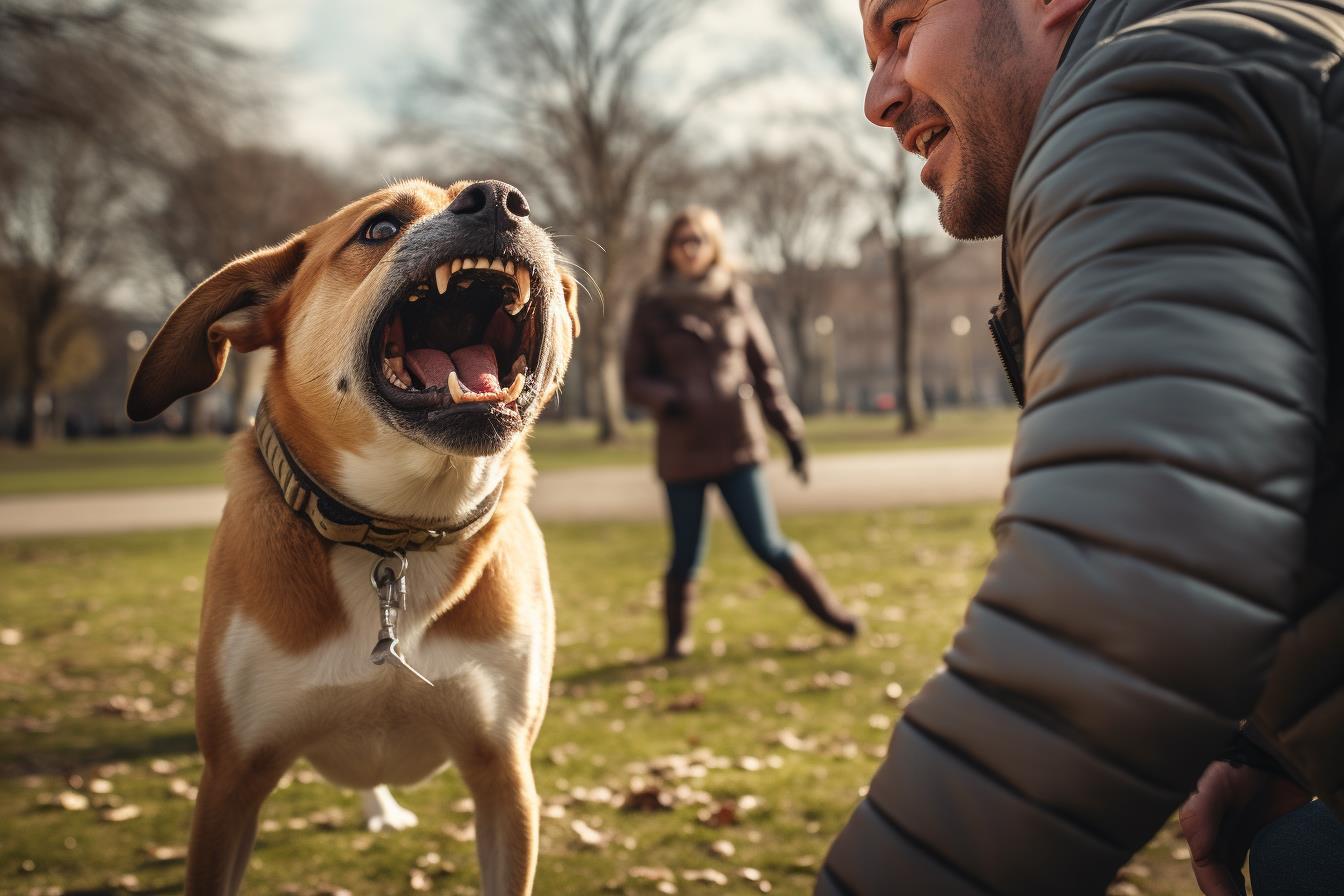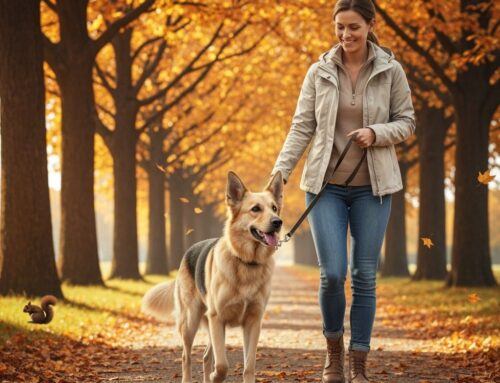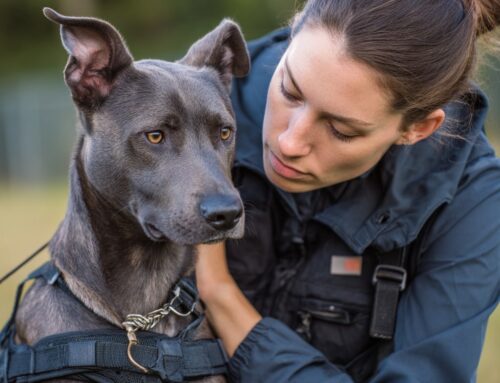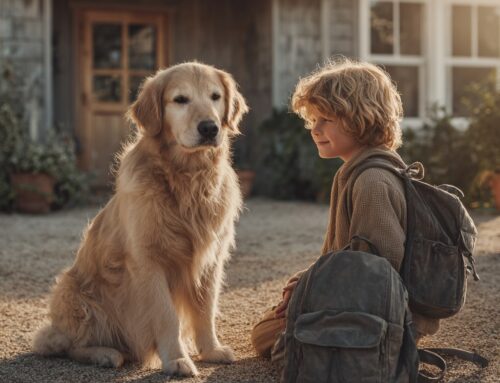Dog aggression can turn daily activities into stressful situations for both pet parents and their furry companions. A seemingly peaceful walk in the park can quickly escalate when a dog displays aggression which can involve barking, lunging, and snapping. In such cases, many pet owners find themselves searching for solutions online and often turn to professional dog trainers for help with this dog behavior.
However, navigating the abundance of information available online can be overwhelming. Not all advice is tailored to address the unique nuances of dog aggression, and the search for effective solutions often leads pet owners to the doorsteps of professional dog trainers especially those that specialize in aggression training. These trainers, armed with expertise and specialized knowledge, play a pivotal role in helping pet parents understand, manage, and rehabilitate their dogs with aggression issues.
The Complexity of Dog Aggression
Exploring the Spectrum of Aggression:
Dog aggression, much like human behavior, spans a diverse spectrum. It’s not a one-size-fits-all phenomenon, with behaviors varying widely in intensity and manifestation. Some dogs subtly communicate their discomfort through growling or avoiding eye contact, while others exhibit more overt signs like barking, lunging, or might even have a bite history. Aggression can be directed towards other animals, humans, or both, and its triggers are as varied as the individual dogs.
Daily Life in the Grip of Aggression:
Living with an aggressive dog profoundly impacts daily life for both pets and their owners. Routine activities like walks, visits to the dog park, or welcoming guests become fraught with tension and uncertainty. Pet owners find themselves constantly on alert, anticipating potential triggers that might set off their dog’s aggression. This heightened vigilance takes an emotional toll on pet parents and creates a stressful environment for the dog, affecting its overall well-being.
Challenges Faced by Pet Parents:
Dealing with an aggressive dog presents numerous challenges for pet parents. Emotionally, they grapple with frustration, guilt, and a sense of helplessness. The fear of potential harm, whether to other animals, humans, or the dog itself, looms large. Practical challenges emerge in day-to-day activities, making socialization and routine outings delicate tasks.
In addition to these challenges, the strain on the relationship between the pet and its owner is palpable. The bond, built on trust and companionship, becomes strained under the weight of aggression. Pet parents may feel isolated, and hesitant to socialize with other dog owners or invite guests into their homes. This isolation exacerbates the challenges, creating a cycle that is difficult to break without the right guidance and intervention.
Understanding and Respecting Your Dog’s Personality:
Also, like people, dogs have unique personalities that may not be entirely changeable. However, through obedience skills under distraction and impulse control, dogs can be taught to behave appropriately around other dogs and people. It’s crucial to comprehend your dog’s thresholds and limitations, recognizing that even dogs have their own boundaries.
By understanding and respecting who our dogs are, we can avoid placing them in situations where they feel the need to protect themselves, potentially triggering aggression. This insight into a dog’s personality forms the foundation for effective rehabilitation in dog aggression training, guiding both pet parents and trainers in creating an environment that fosters positive behavior and addresses aggression with empathy and understanding. This sets the stage for exploring dog aggression rehab and the specialized solutions provided by experts like those at Performance K9 Training.
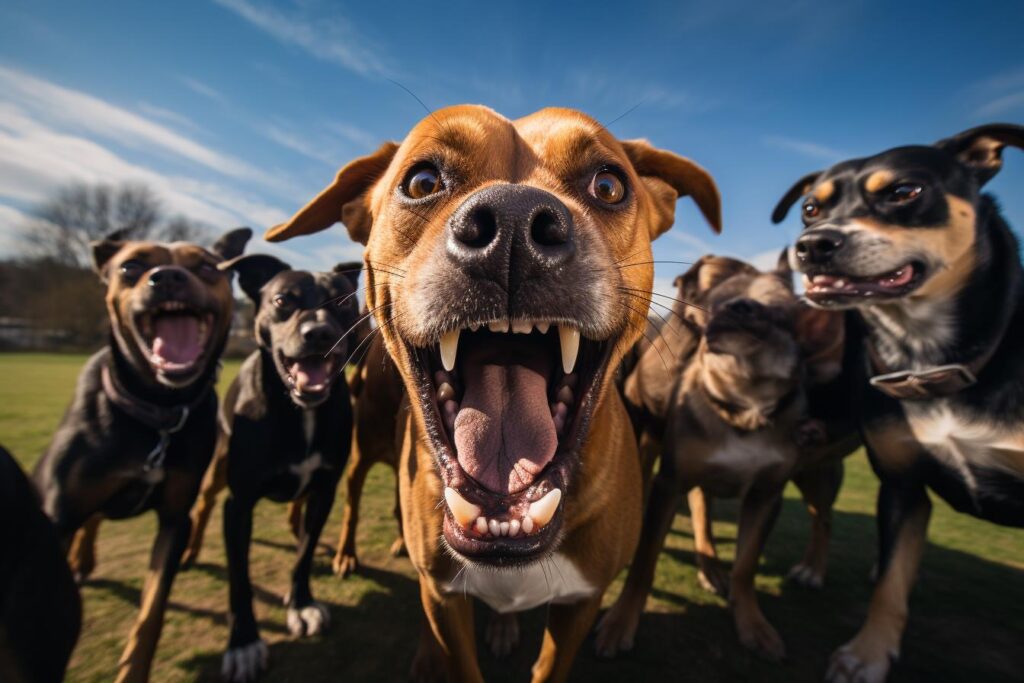
The Importance of Professional Help
Navigating the Maze of Aggression:
When it comes to addressing dog aggression, a one-size-fits-all approach simply doesn’t cut it. Not every dog trainer is equipped with the specialized skills required to navigate the intricate maze of dog aggressive cases. It demands a unique set of expertise and experience to delve into the complexities of aggression, identify its root causes, and tailor effective solutions for individual dogs.
Exploring Various Training Programs and Rehab Centers:
While many pet owners embark on the journey of finding a solution online, the plethora of information can be overwhelming. The logical next step often involves seeking professional help, and here’s where the diversity of training programs and rehabilitation centers comes into play. Various organizations and experts offer their unique approaches and methodologies to address aggression in dogs. Make sure to do your research and find different ways to find the best dog trainer for your dogs.
Exemplifying Expertise:
Consider experts and organizations that have demonstrated their expertise in handling aggression cases. These professionals may come from various backgrounds, each contributing a wealth of experience to the field. Look for trainers who have successfully rehabilitated dogs with diverse aggression issues, showcasing a track record of understanding and addressing the multifaceted nature of canine aggression.
Professional Mentoring and Hands-On Experience:
An exemplary training program or rehabilitation center should not only boast theoretical knowledge but also practical, hands-on experience. Professionals who have been mentored or trained under experienced figures bring a valuable perspective to the table. This mentoring ensures that trainers are well-prepared to handle the nuances of aggression cases and tailor solutions to meet the unique needs of each dog.
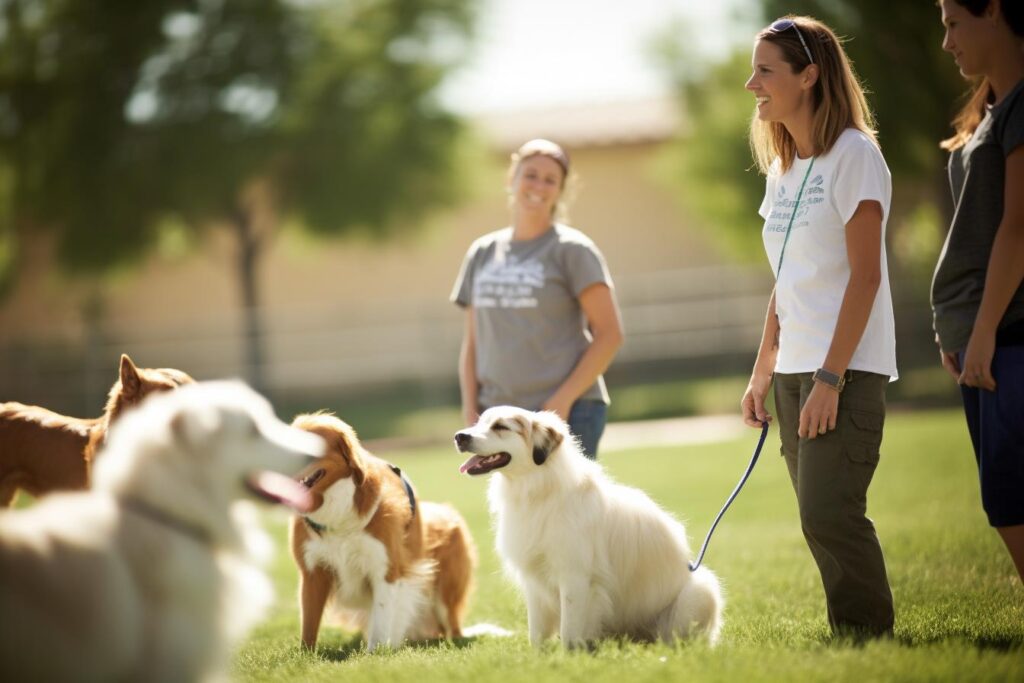
Focus on Specialization:
Differentiating factors among various programs include their specialization. Some trainers may offer general obedience training, while others explicitly focus on rehabilitating dogs with aggression issues. A center that specializes in aggression cases indicates a deep understanding of the psychological and behavioral intricacies associated with aggression. This specialization allows for a targeted and effective approach to rehabilitation.
Assessing Reviews and Success Stories:
Consider reviews and success stories from clients who have undergone training programs or rehabilitation at different centers. Positive testimonials and evidence of successful rehabilitation speak volumes about the efficacy of a particular program or center. This feedback provides insights into the real-world impact of the training on the lives of both dogs and their owners.
By highlighting the importance of seeking professional help and exploring various training programs and rehabilitation centers, we underscore the significance of finding the right fit for addressing dog aggression and helping your family members and your dog have a better future together.
Understanding Aggression Types: Unraveling Canine Complexity
Aggression in dogs manifests in various forms, each shedding light on the complex interplay of factors influencing a dog’s behavior. Three primary types of aggression often encountered are fear aggression, frustration-aggression, and dominant aggression.
A thorough assessment is important in unraveling the intricacies of aggressive dogs. Trainers and behaviorists employ a multifaceted approach to discern the specific type of aggression at play. This involves observing the dog’s behavior in various contexts, analyzing triggers, and evaluating the dog’s responses to different stimuli. Through this comprehensive assessment, professionals can tailor interventions that specifically target the root causes of the aggression.
Physical pain can also be a significant contributor to behavioral changes in dogs. Before diving into behavior modification, ruling out physical pain is paramount. A dog experiencing discomfort or pain may exhibit aggression as a defensive mechanism. Veterinary consultation and thorough health assessments help eliminate physical pain as a factor, ensuring that the chosen intervention strategies address the underlying behavioral aspects of aggression.
Understanding the spectrum of aggression types, conducting meticulous assessments, and ruling out potential physical discomfort collectively form the groundwork for effective dog aggression rehabilitation. Armed with this knowledge, trainers and behaviorists can tailor their approaches to address the unique needs of each dog, paving the way for successful intervention and positive behavior modification.
The Rehabilitation Process: Unveiling the Path to Canine Harmony
Embarking on the Journey with a Consultation:
The journey towards rehabilitating a dog with aggression issues kicks off with a pivotal step—the consultation. This initial meeting serves as a crucial foundation for the entire rehabilitation process. Trainers and behaviorists at reputable centers, such as Performance K9 Training, understand the importance of gaining insights into the unique dynamics at play in each case before devising a tailored intervention strategy.
During the consultation, trainers engage with the family and, where possible, with the dog. This preliminary interaction is not merely a formality; it’s an exploration aimed at uncovering the underlying triggers and behavioral patterns. Trainers ask specific questions to unravel the intricacies of the situation, even before meeting the dog in person. This proactive approach ensures that the rehabilitation process is personalized, addressing the specific needs and challenges presented by the dog’s aggression.
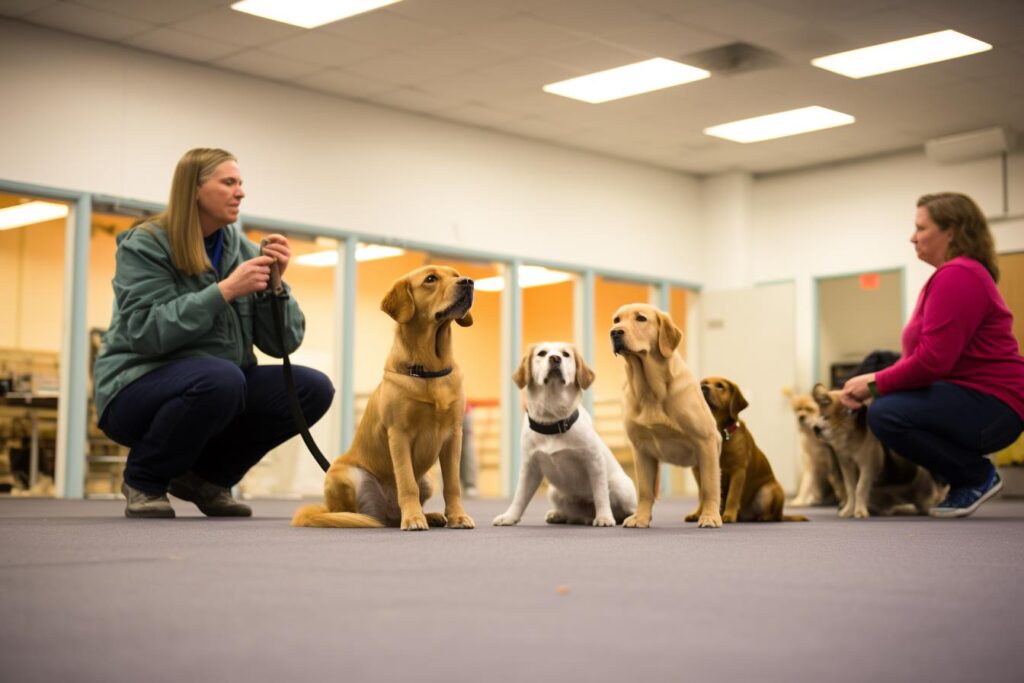
Identifying Learned Behavior – The Root of Aggression:
A fundamental aspect of the rehabilitation process involves identifying learned behavior as a root cause of aggression. Dogs, like humans, can develop behavioral patterns based on past experiences. Aggression, in many cases, is a learned response to perceived threats or stressors. Trainers delve into the dog’s history, scrutinizing past interactions, experiences, and environmental influences that may have contributed to the development of aggressive behavior.
Understanding the roots of aggression is akin to unlocking a puzzle. It allows trainers to grasp the factors that have shaped the dog’s responses, providing a roadmap for targeted intervention. This insightful analysis goes beyond surface-level symptoms, delving into the core behavioral patterns that need modification.
Obedience Training – A Transformative Tool:
The crux of the rehabilitation process lies in the transformative power of obedience training. Once learned behavior is identified, trainers craft a comprehensive training approach that centers around obedience under distraction. The ultimate goal is to instill strong obedience skills in the dog, enabling it to navigate various situations without resorting to aggression.
Through structured training sessions, dogs learn to respond to commands and cues even when faced with distractions or triggers that might have previously elicited aggressive behavior. Obedience training serves as a powerful tool to rewire the dog’s responses, fostering a sense of control and discipline. This is not merely about teaching commands; it’s about instilling a foundation of respect, trust, and communication between the dog and its owner.
Impulse Control – Polishing the Obedience Framework:
A key element in the rehabilitation process is the emphasis on impulse control. Dogs, much like humans, can succumb to impulsive reactions in the face of stressors or stimuli. The polished obedience framework instilled through training serves as a powerful mechanism for impulse control. By reinforcing the dog’s ability to exhibit self-control and restraint, trainers guide them away from unwanted behaviors, even in the presence of distractions.
Impulse control is particularly crucial in mitigating aggression triggers. Dogs learn not only to tolerate but also to navigate situations that previously provoked aggression. This finely tuned ability to manage impulses contributes to a more harmonious coexistence between the dog and its environment.
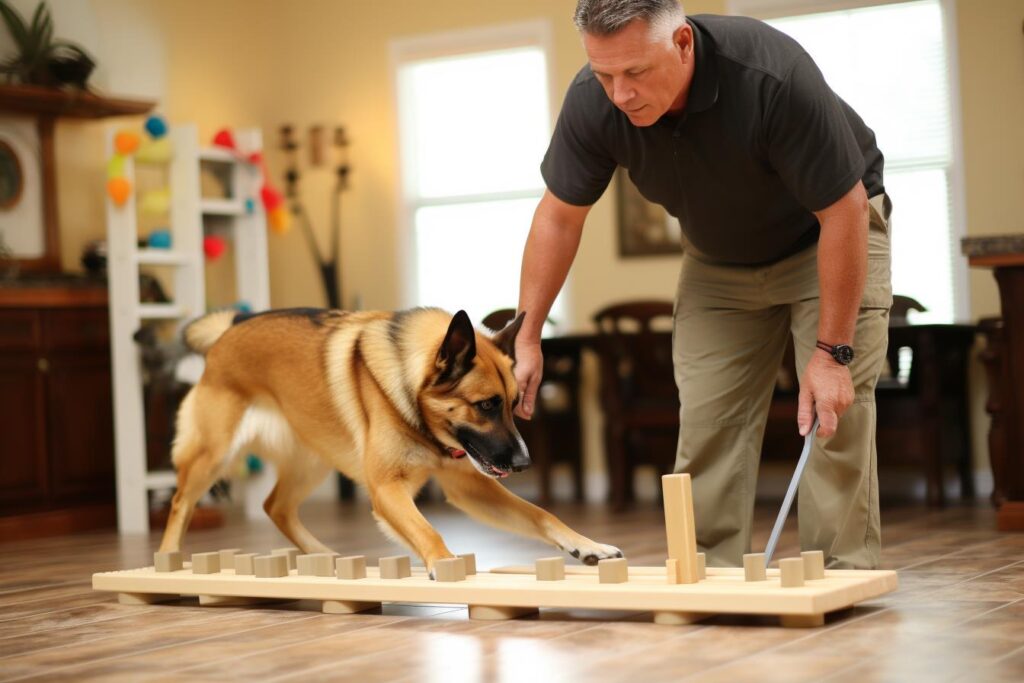
Why Dog Aggression Rehab is Important
Dog aggression rehab is not just about suppressing aggressive behavior; it’s a comprehensive and compassionate approach to enhancing the overall well-being of both dogs and their owners. The reasoning behind this specialized form of rehabilitation stems from a commitment to:
- Address the Root Causes: Unlike quick fixes or superficial solutions, dog aggression rehab delves into the root causes of aggression. It acknowledges that aggression is often a symptom of underlying issues, and effective rehabilitation requires a firm understanding of these issues.
- Modify Behavior Through Understanding: By identifying learned behavior and understanding the dog’s unique history, rehab aims to modify behavior through positive reinforcement and tailored interventions. It’s a process that acknowledges each dog’s individuality and works towards creating lasting behavioral changes.
- Create a Positive and Trusting Relationship: Obedience training, coupled with impulse control, goes beyond behavioral modification; it fosters a positive and trusting relationship between the dog and its owner. This relationship becomes the bedrock for a harmonious coexistence, where the dog feels secure and the owner is equipped to guide and support their furry companion.
- Enhance the Quality of Life for Both Dog and Owner: Ultimately, dog aggression rehab seeks to enhance the overall quality of life for both dogs and their owners. It transforms stressful situations into opportunities for growth, understanding, and positive interaction. The ripple effect extends beyond the immediate rehabilitation period, creating a foundation for a lifelong bond based on trust, respect, and shared experiences.
Dog aggression rehab is a holistic approach that recognizes the complexity of canine behavior, addresses the root causes of aggression, and strives to create a positive, balanced, and fulfilling life for dogs and their devoted owners.
Take the initial stride toward a harmonious bond by opting for Performance K9 Training’s dog aggression rehab program. This program strives to cultivate a deep and lasting connection between you and your cherished pet. Dive into the expertise of Performance K9 Training and get the professional help your beloved dog may need with a balanced methodology of positive, but firm dog aggression training. Contact Performance K9 Training today for a consultation so we can help bring harmony to you and your beloved pet.



